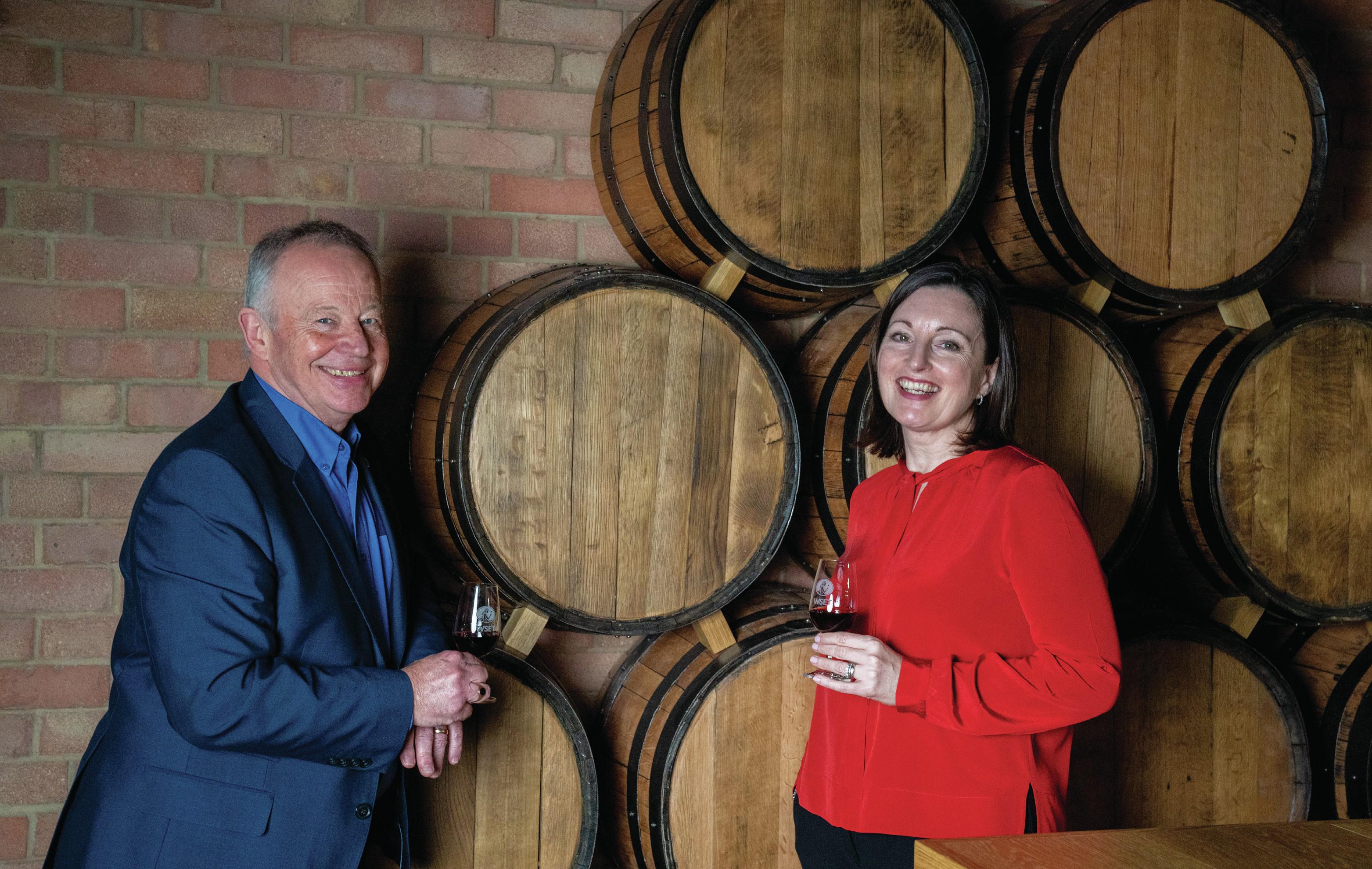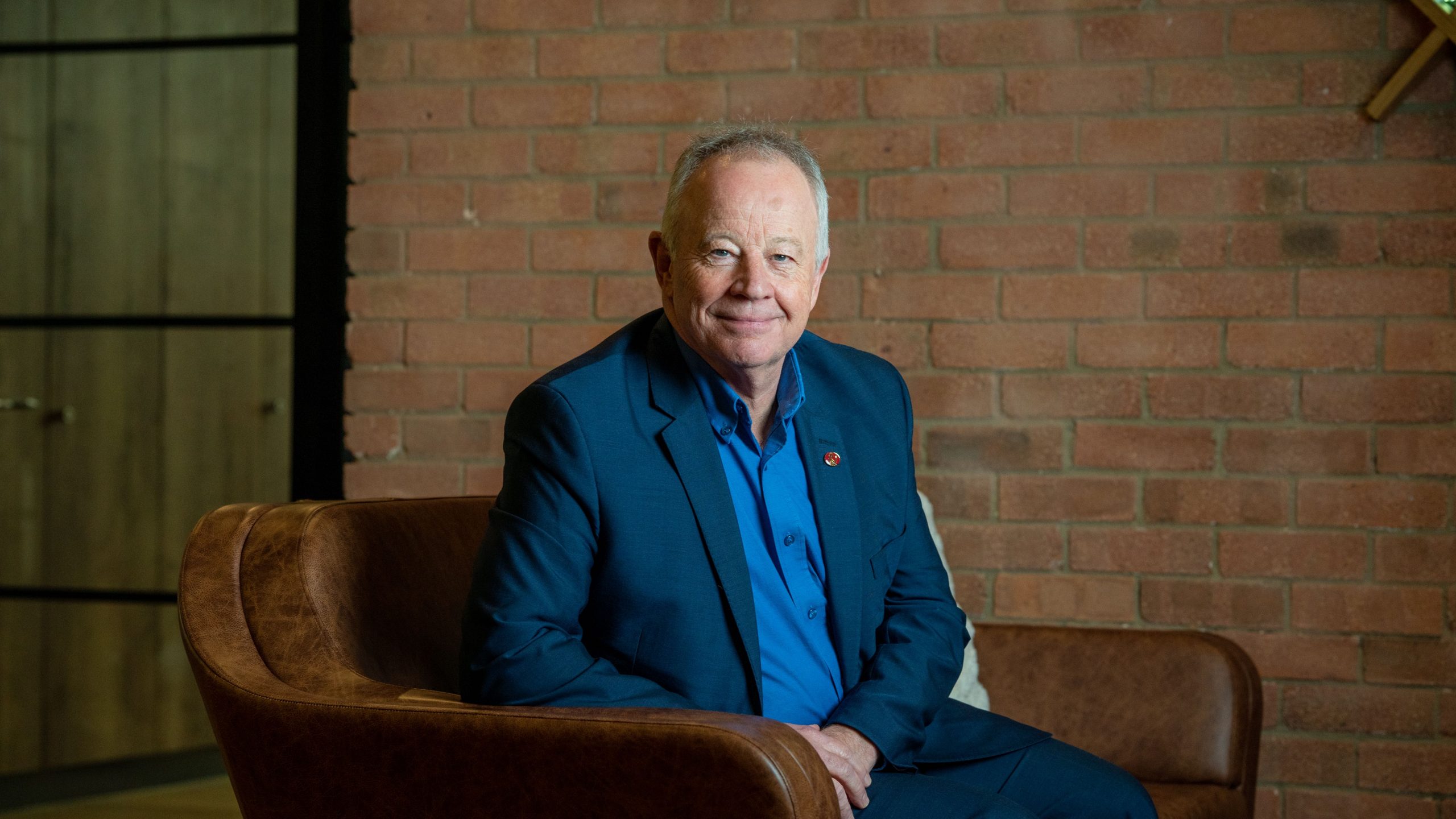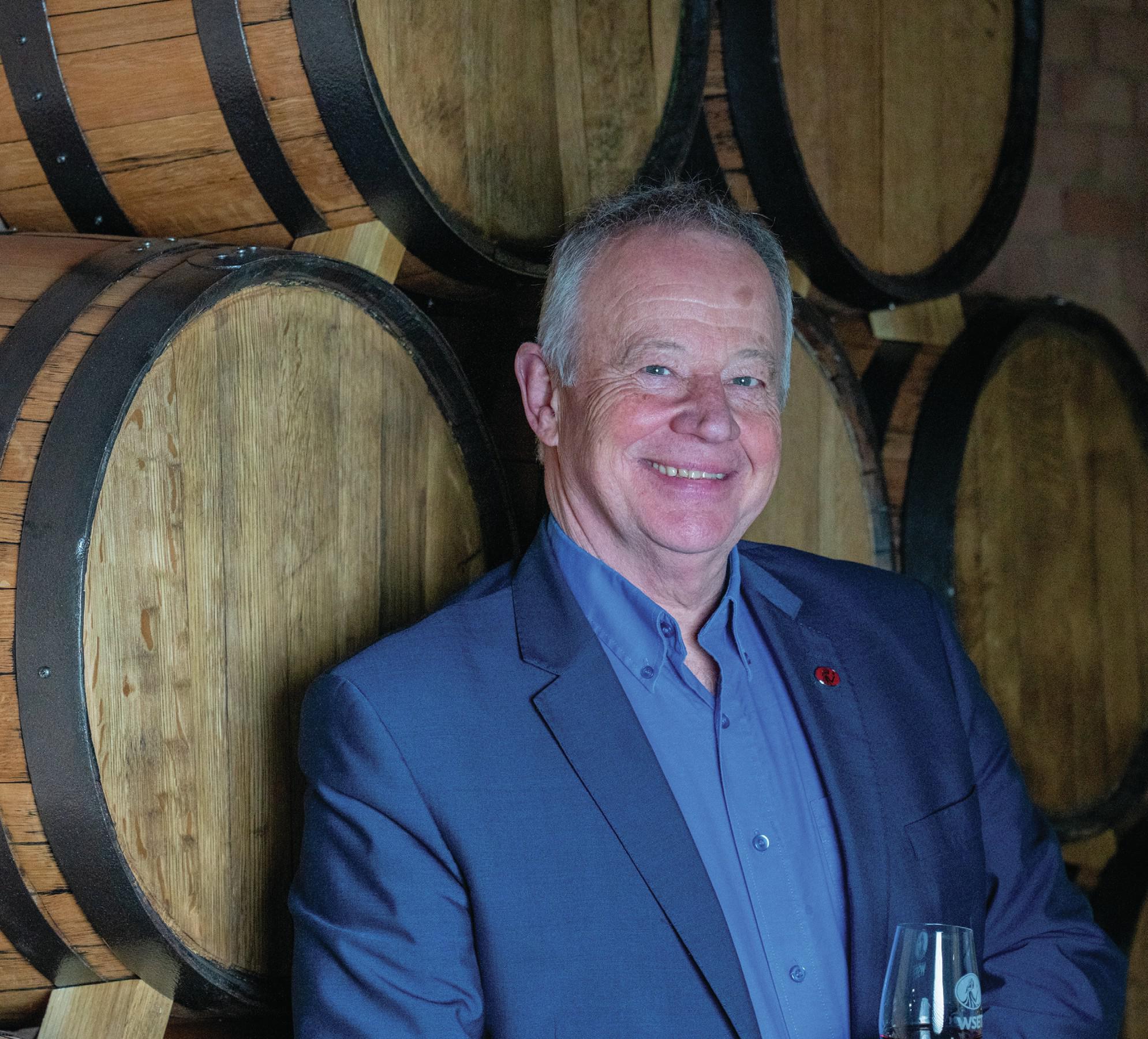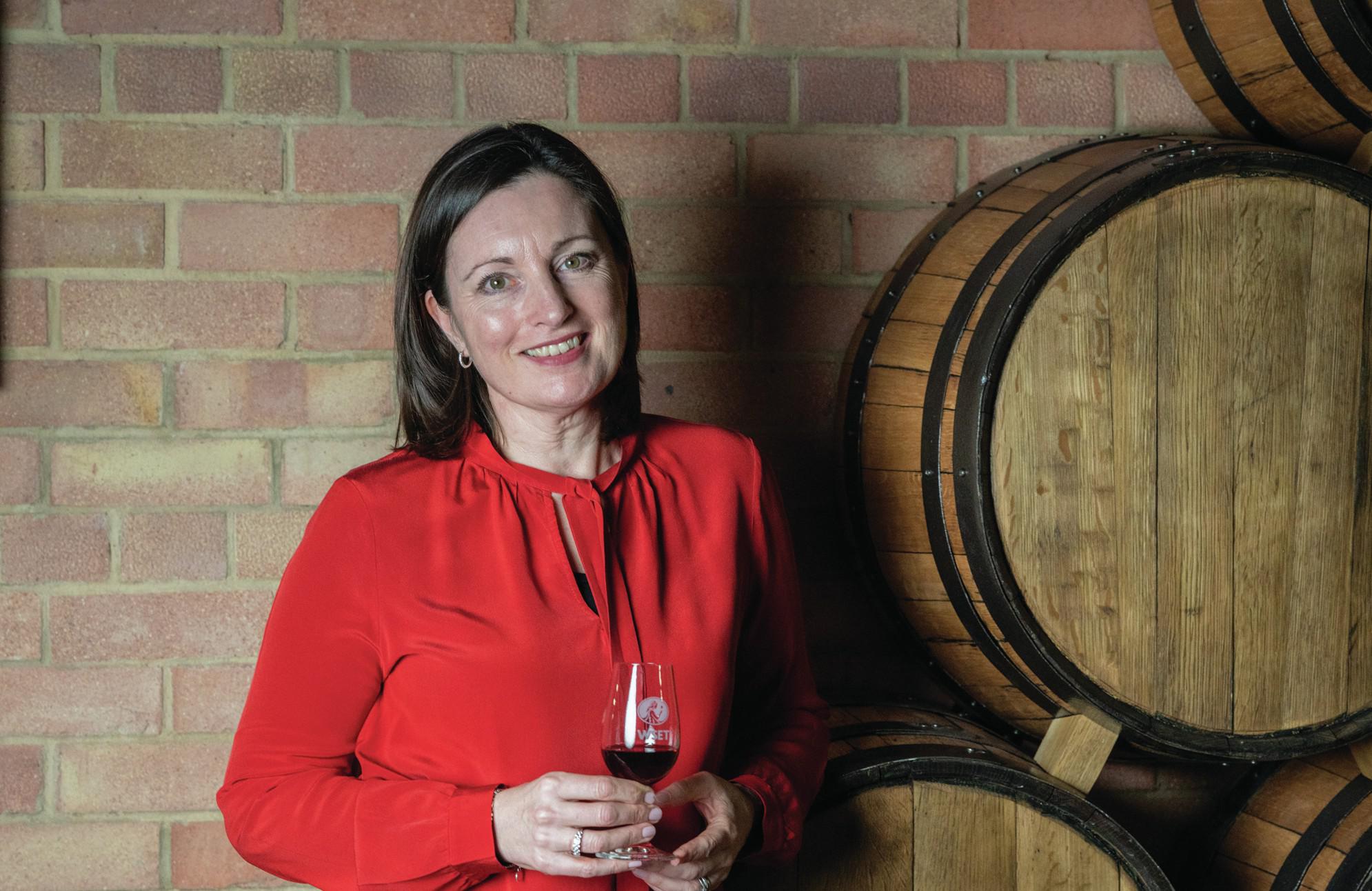The big interview: Ian Harris on 20 years at the WSET
By db staff writerHaving served as CEO of wine and spirits education provider the WSET for 20 years, Ian Harris is leaving the organisation in a strong position, as he hands over to Michelle Brampton.

A REAL optimist. That’s how Ian Harris describes himself after discussing the most challenging moments of his 20-year stint as CEO of the largest wine and spirits education provider in the world – the WSET. We are sitting at the trust’s relatively new headquarters in London just two months before Harris steps down for good – he leaves on 15 April, which is “20 years to the day” since he joined the organisation. “It closes it off with a nice, neat bow,” he tells me, admitting that he’ll be “very nearly 67 when I leave”.
It’s his good-humoured, unflappable nature that will be much missed at the WSET, as well as his personable approach to management. “I’ve always loved going to trade shows,” he states, smiling, “I love meeting people… and I wish ProWein had been in March, rather than May,” he adds, as he could have attended the event for one last time as WSET CEO, had the fair not been postponed.
He assures me he will go to the London Wine Fair in June, but, of course, by that time he will be free from the daily demands of leading an organisation with offices in the UK, US, Shanghai and Hong Kong, as well as over 800 centres in 73 countries that provide courses in 15 languages to more than 100,000 students.
As for that seemingly endless positive outlook, Harris has had his temperament tested at the WSET. The most recent troubling period related to Covid-19 – a challenge he could have avoided altogether had he kept to an initial plan to leave the establishment when he was 65.
Indeed, had he not chosen to extend his time at the WSET by a further two years – a decision taken “well before Covid” – then, he jokes, “I would have retired as the pandemic hit, and said, ‘over to you’”, referring to his successor, Michelle Brampton, the former European managing director at Treasury Wine Estates, (who you can read more about below).
However, later in our conversation, it’s clear that in this case, there’s no truth in such jest, as he says: “Even if I’d known two years ago the damage that Covid was going to do, I would have stayed; I wouldn’t want to leave the WSET in the lurch.”
As it was, he was on hand to deal with the rapid shift to digital education and examinations that the pandemic necessitated. He recalls: “At the graduation ceremony in [January] 2020, I made reference to a flu-like disease in China in my speech… and in the second week of March, we had closed our office, our school, everything, which meant we couldn’t process any exams for weeks – most of them are on paper. With exams stacking up, and lead times slipping, we fast-tracked our digital assessments, employing remote invigilation, which we launched in a hurry in May. I would have liked more time to test it, but we made sure that the exam process was carried out in a robust and fair way, and it was launched six weeks after the pandemic hit. Now 20%-25% of our candidates do the exams remotely.”
Then in January 2021, Harris faced another major, if more localised, setback, when the WSET had to stop to its activities in China, including all courses and examinations. It was a blow because this was the WSET’s largest market, with almost 20,000 students. Harris explains: “We had to suspend our business in China because the Chinese authorities said we had violated a law that governed NGOs. We didn’t know, and about 5,000 UK charities were caught up in this, but we had not adhered to regulations that said you have to have an authorised NGO office in China.”
The WSET has since met the Chinese requirements by setting up a base in Shanghai (as well as its office in Hong Kong), which means the education provider can resume its courses in the country “any minute now”, according to Harris, who is just awaiting final sign-off.
“We have had to jump through lots of regulatory hoops, but we haven’t had a single candidate in Mainland China for 12 months,” he says. It had been hoped that the market would provide the WSET with 20,000 students in 2021.

HIGH LEVELS OF GROWTH
Despite losing this substantial business, Harris is leaving the WSET having achieved the highest number of students in its history, although he admits that the number was inflated by the near 6,000 “charity places” given by the trust last year, primarily to those in the hospitality trade – which has been so damaged by Covid-related restrictions. But the Chinese financial shortfall has been compensated for by high levels of growth in “lots of other markets”, with Harris adding: “Online has really helped.”
In terms of the leading nations for WSET candidate numbers, the US is in first place, followed by the UK and then France – which is now in the top three following China’s drop down the charts. The high position of France in the ranking pleases Harris in particular, who says: “The French industry now understand that they need to know about the world’s wines, but when I joined the WSET, the view from France – as well as Italy and Spain – was ‘why do we need to learn about wine from around the world?’. But it’s now appreciated by a French Cabernet producer that their competitor is not a neighbour; it’s someone making Cabernet on the other side of the world.”
Asked to name his aim for the WSET when he started, Harris says it was to expand the global reach of the education provider. “International growth was the goal I set out when I joined in 2002, and America was always going to be the big prize,” he says, although he also recalls the challenges of setting up in the US.
“Twelve years ago, there was a campaign questioning whether the WSET [being a charity] was legal in America – which we sorted,” he says, before commenting that there were people looking to “have a dig at the WSET”.
China was also in his sights from the outset, having been a major focus for Harris when he was brand manager for Martell. “When I was at Seagram, I was told: ‘Forget the UK, the future is China’,” he recalls, referring to high-end Cognac sales. As for the WSET, when Harris joined the organisation, 75% of its business was in the UK. “If we had remained that way, we’d have gone bust by now,” he says.
Today, the UK represents fewer than 20% of the WSET’s candidates, with around one fifth in Europe, almost one quarter from the US, and the rest spread around the world, especially China – which accounted for 23% of students before the forced, if temporary shutdown of the courses in the nation.
When he departs in mid-April after a seven-week handover period to Brampton, he has no plans to return to the WSET in some advisory capacity. “I’m leaving; I’m not coming back as a trustee, I think that’s the right thing to do, but I’ll always be available at the end of the phone,” he says.
However, retiring is not a word Harris likes to employ. Careful to use the term “stepping down” when referring to his departure from the WSET, he says he won’t be giving up work. “I have a couple of irons in the fire, and, while I can’t say what they are now, I will remain connected to the industry that has remained my life for the past 45 years.”
Having studied French at university, Harris had planned to become a teacher, but, following a sip of Sauternes during a year abroad in Bordeaux in 1977, he changed his mind, and, on his return to the UK, opted for a role at London’s Christopher & Co – a part of Waverley Vintners. Spending 10 years at this organisation, he took a jump forward in 1984, when he moved to Edinburgh to become Waverley’s first wine development manager.
Moving into spirits on joining Seagram in 1987, his “biggest career move” then came in 1989 when the group needed someone with sales and marketing experience, along with fluent French – all skills Harris had – to manage the newly-acquired Martell Cognac brand. It was from this moment that “things really picked up”, he says, before admitting that before that moment, life at Seagram had been tough.
“God, it was depressing trying to sell Seagram’s brands into Peter Dominic,” he says, speaking about the dominant off-licence chain of that era and the somewhat lacklustre set of labels within his portfolio. “I came really close to chucking it all in,” he adds.
But his hopeful disposition pulled him through. And it would again, when Seagram was “basically folded up” in late 2001, and its staff were “scattered to the four winds”, leaving Harris, at 46, without a job. A few months later, and the role he currently holds at the WSET came up. He expresses his delight at being granted the position, which he never thought would give him such a lengthy period of complete career satisfaction. “While I did think this would be my final job, I never thought it would last much longer than 12 years,” he says.
“It has been the most wonderful job. I have loved every minute, even with all the challenges.”
Highlights for Harris include his appointment as a Member of the Order of the British Empire (MBE) in the 2018 New Year ’s Honours List in recognition of his services to the wine and spirits industry. However, he describes his best moment as being awarded, in 2015, on behalf of the WSET, the Queen’s Award for Enterprise in International Trade, which is the highest accolade for business in the UK. This required Harris to head to Buckingham Palace, where he met the Queen, giving him the chance to tell her that the WSET teaches her staff in the Royal Household.
On returning to Buckingham Palace to collect his MBE three years later, he recalls meeting the Duke of Edinburgh, who quipped when shaking Harris’s hand, ‘So you teach people how to drink, do you?’
What has sustained Harris’s great love for the drinks trade? “It’s the people,” he says, without hesitation. “I just met lovely people; from the moment I came across those in the wine business as a student to my first days in the trade. Within four days of starting at Christopher’s we had a customer tasting, and I was told to look after a stand with Hugel Gewürztraminer and Dolcelatte from [cheese merchants] Paxton & Whitfield, and I’d never tasted Gewürztraminer nor Dolcelatte, but it was the people, I loved the people,” he says. His friendships even extend, “to those buyers who’ve ripped the shirt off my back”.
A GREAT AMBASSADOR
But it’s also education that Harris adores. He counts teaching as his first love, something he has been able to put into practice as a lecturer on the WSET’s annual Business and Commercial Knowledge (BACK) course in the UK. It’s for this reason that Harris will certainly not “be sitting in a corner in slippers” on leaving the trust, but will “be a great ambassador for the WSET for the rest of my life. I’m a passionate believer in education.”
Acknowledging that business skills are needed along with product knowledge, he nevertheless stresses the importance of learning as much as you can about wine and spirits if you work in the drinks trade. After all, he says, offering a friendly word of warning to anyone in this business: “If you are in front of a buyer who knows more than you do, then you are going to get stitched up.”
Ian Harris: a biography

- Ian Harris will have been CEO of the WSET for exactly 20 years when he steps down from the organisation on 15 April this year, having joined on that same date in 2002.
- During that time he has helped to build the WSET into a truly global organisation with over 800 course providers in more than 70 countries, offering qualifications in 15 languages.
- Harris started his career in the wine trade at Christopher & Company/ Waverley Vintners in 1977, where he worked for 10 years before joining Seagram UK in 1987, where he held a number of roles until the company “hit the buffers” at the end of 2001.
- During his 15 years at Seagram he worked as a national account manager and global marketing manager for Martell Cognac, as well as UK marketing director, and finally, commercial director.
- Harris holds the WSET Diploma, and a degree in French from Westfield College, University of London. He was educated at Dulwich Colllege.
- His interests include sport and music, while he describes his tastes in drink as “eclectic”, with his favourite drops ranging from Sauternes and Saint-Émilion – due to his days as a student in Bordeaux – to a pint of London Pride, and a glass of Gewürztraminer, while, following his years representing Martell, he says, “there’s nothing better than sitting down with a small glass of Cognac”.
Facts about the WSET

• The Wine & Spirit Education Trust (WSET) is an awarding body and registered charity devoted to the development and delivery of qualifications and courses in wines, spirits and sake.
• During the academic year 2020-21, as many as 108,500 students took a WSET qualification.
• The WSET has 800+ course providers in 73 countries, and offers its qualifications in 15 languages.
• Since the WSET was founded in 1969, it has awarded over one million students a WSET qualification.
• The top 10 WSET markets by candidate registrations for the academic year 2020-21 are:
1. US
2. UK
3. France
4. Mainland China
5. Hong Kong SAR, China
6. Canada
7. Australia
8. Singapore
9. Taiwan, China
10. South Korea
Michelle Brampton, CEO designate

Brampton joined WSET on 1 February as CEO designate to work alongside Ian Harris before his departure on 15 April.
She previously spent 19 years at Treasury Wine Estates, where she most recently held the role of managing director Europe, Middle East and Africa (EMEA) from 2018 to 2021. During this time Brampton was also on the boards of both The Drinks Trust and the Wine & Spirit Trade Association.
She tells db about her plans for the WSET. “My initial focus has been on getting to know the team and understanding how the organisation works. WSET’s open and friendly culture has made this easy for me and I have been made to feel very welcome. As we move forward, my immediate priority will be to ensure that we continue to improve the exam processing service we offer to our course providers and students. At the same time, my team and I will be planning for the future to make sure we continue to delight our course providers and students globally with the world class drinks education we offer.”
- This interview first appeared in the April edition of the drinks business.
Related news
Should Rioja increase its focus on white wine?
The 'family spirit' behind Champagne Gardet's 130th anniversary
